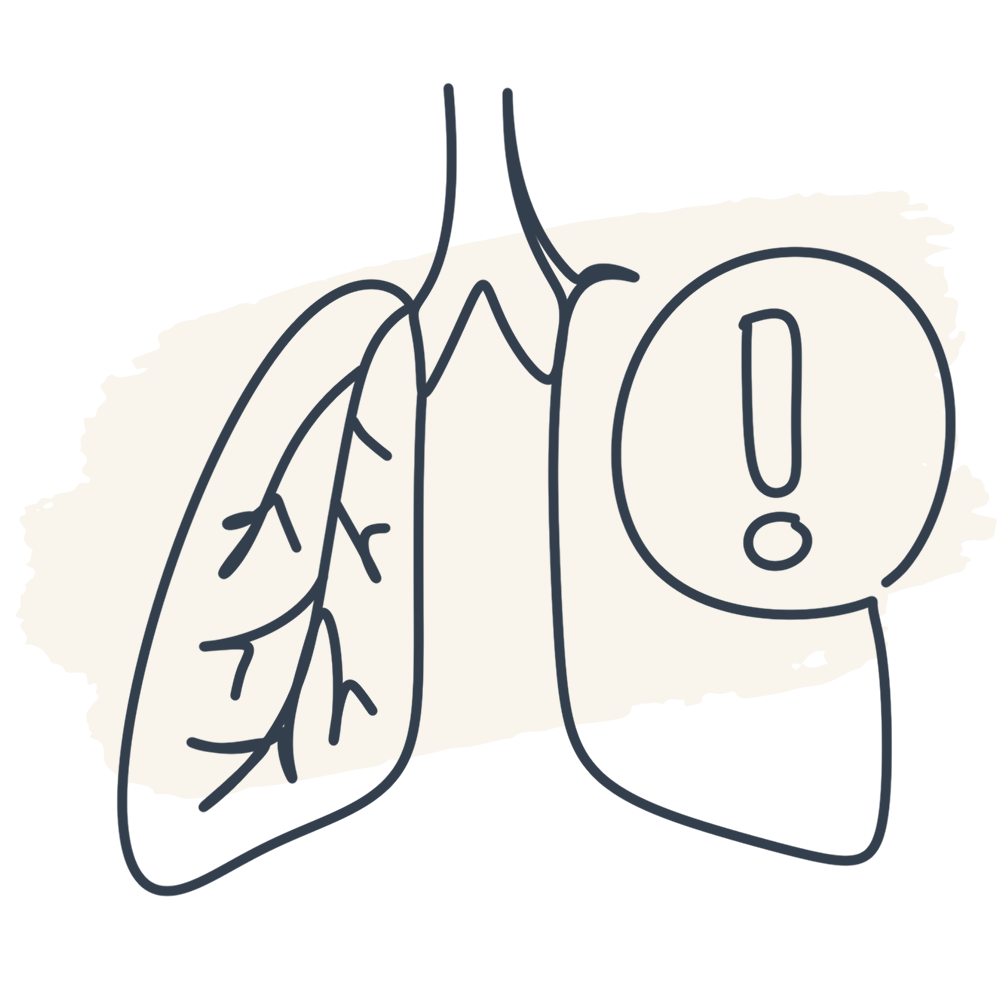This content is aimed at adults helping other adults living with COPD. It is not personalised medical advice. If someone is concerned that they might have a flare up of their COPD they should always seek or follow personalised medical advice. You should always seek urgent advice if you develop a temperature or become unusually breathless and if you are at all concerned do not hesitate to dial 999
People who receive earlier treatment for flare-ups of chronic obstructive pulmonary disease (COPD) are more likely to fare better, and are less likely to need emergency hospital care. Studies show that many patients delay seeking help or do not tell their doctors and nurses about worsening symptoms.
If you or someone you love has COPD, it is very important to know how to recognise and respond to a COPD flare-up. People who receive earlier treatment for COPD flare-ups of chronic obstructive pulmonary disease (COPD) are more likely to fare better, and are less likely to need emergency hospital care.
Studies show that many patients delay seeking help or do not tell their medical teams about any worsening symptoms.
This article will help you to understand more about recognising and seeking help for flare-ups of COPD so that you or your loved one can access the necessary treatment and support.
About treatment for COPD
Treatment for COPD aims to:
- Prevent and control your day to day symptoms
- Help your lungs to work better
- Help you live a longer and healthier life
- Reduce the number and severity of exacerbations or flare ups
What is a COPD flare-up?
Someone living with COPD is likely to experience periods during which their symptoms are stable and controlled by their medicines and inhalers, and periods when their condition “flares up” and is suddenly much worse and needs extra care. COPD flare-ups – also known as acute exacerbations – vary in severity and can be relatively mild or very serious requiring intensive hospital care. At the start of a flare up, it can be impossible to know how serious it might become but prompt care can help to avoid things escalating.
Recognising the signs
Signs of a flare up can vary but typically, the early indications of a flare up include:
- Coughing more than usual
- Shortness of breath which is worse than usual
- An increase in the amount of phlegm
- Changes in the colour of phlegm – yellow, green, tan or bloody
Although it’s normal for COPD symptoms to vary a bit from day to day, if these symptoms last for more than a day then they might indicate a flare up and you should seek or follow medical advice.
Managing exacerbations of COPD
Adults living with COPD should have regular appointments with their GP or practice nurse (or in some cases hospital specialist) to assess and monitor their condition and its treatment. As part of this ongoing care, they should be advised how to recognise a flare up and what to do about it. The action plan might include a prescription for a “rescue pack”.
You can ensure that the person you care about is getting regular monitoring and advice and that they know about, and how best to deal with, any flare ups. You can also help them understand and follow this advice.
Rescue packs
What is a rescue pack?
Some COPD patients will be given extra medicine to keep at home and to take if they are having a flare up. This pack of medicine is sometimes known as a “rescue pack” and might contain antibiotics and/or steroid tablets depending on what the best treatment is likely to be for them.
The great thing about a rescue pack is that it’s there, on standby, for whenever it is needed. It ensures that treatment can be started early on without waiting for either a medical appointment or for a pharmacist to dispense a prescription.
Using a COPD Rescue Pack
If you are not sure whether or when to start using a rescue pack you can check with your doctor or nurse or the out of hours service (NHS 111). If you start using a rescue pack and things do not seem to be improving you should always seek urgent medical advice.
If you use your rescue pack as instructed and things get better, you should still contact your doctor or nurse to let them know what has been happening. This will ensure that they can:
-
- arrange a replacement pack
- fully understand how often you are experiencing flare ups
- monitor how much extra treatment you need
- consider alternative ways of treating or preventing flare ups
- review and update your ongoing COPD care plan
Unlock your free COPD Toolkit
Managing Chronic Obstructive Pulmonary Disease (COPD) can be challenging, both for those affected and for the carents who support them. At Carents, we understand the complexities involved in caring for someone with COPD. That’s why we’ve compiled our most valuable resources into a comprehensive COPD Support Toolkit, designed to provide practical advice and information to help you navigate this journey
Simply complete the form and the toolkit will be sent to you via email.
Want to know more?
British Lung Foundation Breathe Easy Support Groups
These community groups are organised all over the UK.
The British Lung Foundation have plenty of advice to control breathing
